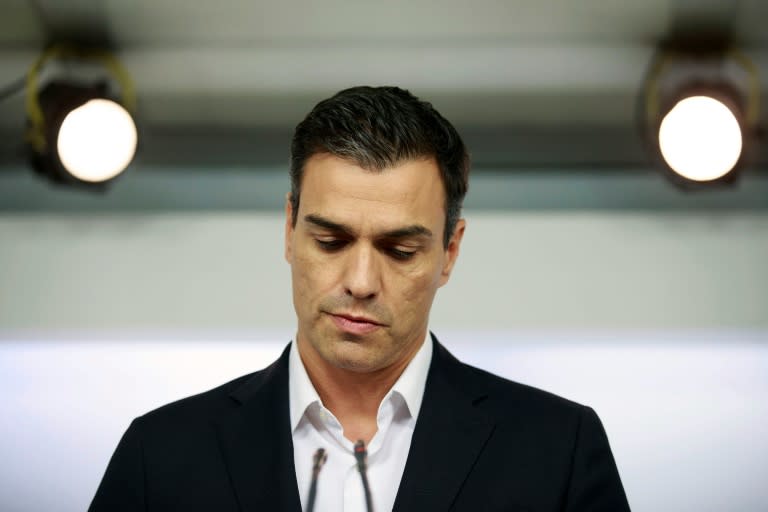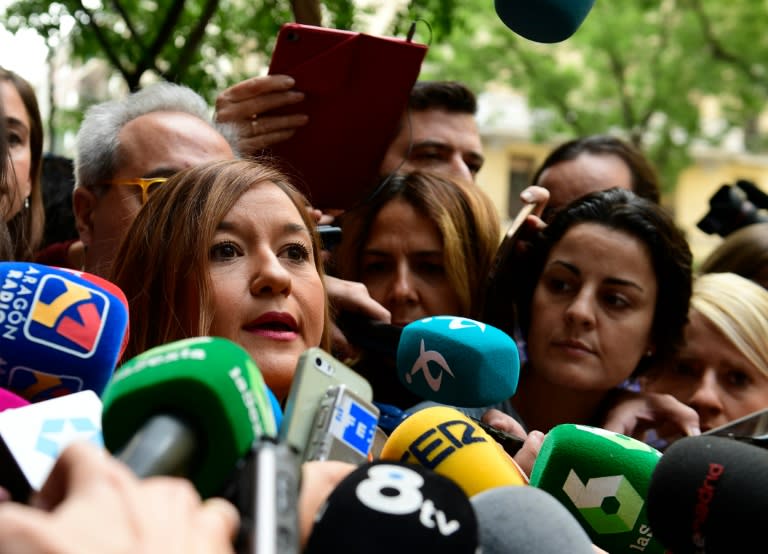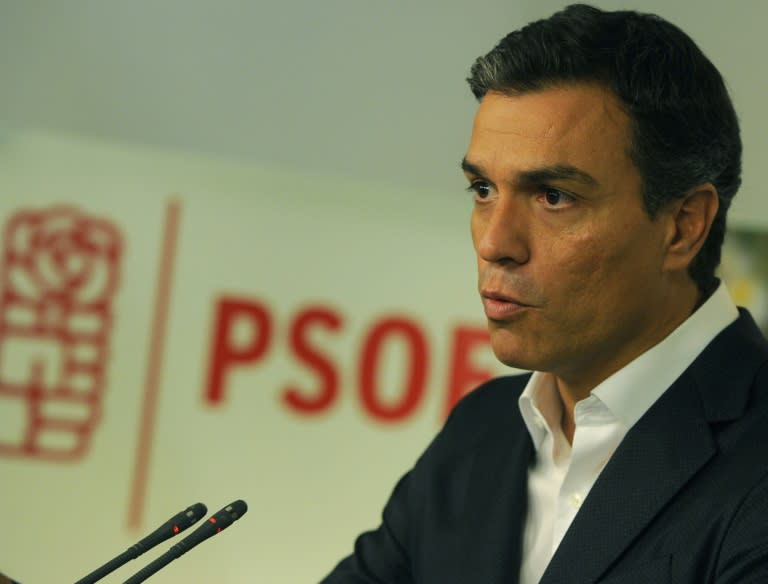Spain's crisis-hit Socialists in leadership showdown
Spain's crisis-hit Socialists gathered for a key meeting Saturday to attempt to help end the country's prolonged political deadlock and decide the fate of embattled party leader Pedro Sanchez. The roughly 300 members of the party's federal committee were summoned to Socialist headquarters in Madrid for a showdown between allies of Sanchez and opponents who want him out. The outcome could see the party lift its veto on a new government led by acting conservative Prime Minister Mariano Rajoy, a move that could be key to unblocking Spain's nine-month political paralysis. With feelings running high, the meeting started late and the committee then agreed to go into recess to determine the parameters of the debate and if there would be a vote after it, El Pais reported on its website, which was providing a blow-by-blow account as some 150 party members demanded a chance to speak. By mid-afternoon, there had been three adjournments with no inkling of a breakthrough. "Tough moments (but) I don't want to lose hope," tweeted Pepe Martinez Olmos, a senator who professed he "loved" his party. - Internal dissent - Since December 2015, the country has been without a fully-functioning executive as rivals fail to agree on a government following two elections in which none of the main parties won an absolute majority. Even Rajoy, whose Popular Party won both elections though without enough seats to rule alone, was forced into negotiating a minority government which was voted down in parliament earlier this month. On Friday Sanchez made his first public appearance since senior party members tried to oust him on Wednesday. His face was sombre as he predicted the committee would face a "decisive debate". The Socialist Party (PSOE) has been wracked for months by internal dissent, and tensions boiled over into open warfare after 17 members of the party's 35-strong executive quit together in a bid to force Sanchez out. The ill-feeling was evident again Saturday as Sanchez supporters shouted "no means no, no means no," in showing their backing for his continued opposition to a Rajoy-led administration. Dozens of PSOE members backing Sanchez were out bright and early at party headquarters to roundly boo his opponents, decrying them as "putschists" and "fascists" as they showed up for the meeting. Sanchez detractors want the PSOE to use the 85 parliamentary seats it won in June polls to help unblock the national deadlock and allow Rajoy to lead a right-wing government by abstaining in a vote of confidence, rather than voting against as it did earlier this month. The PSOE's place is "in the opposition," said Socialist lawmaker Eduardo Madina, who opposes Sanchez. - Hints at resignation - Sanchez opposes another Rajoy term, pointing to repeated corruption scandals hitting the PP and inequalities sparked by years of austerity. "Spain doesn't deserve another four years of Mariano Rajoy at the head of the Spanish government -- four more years with a prime minister who has systematically lied to Spanish society," he said Friday. Sanchez has hinted he would step down if a majority of those at the federal committee reject his vision of what direction the party should take -- in other words if they favour abstaining. "Obviously I could not put into practice a decision that I don't agree with," he said. If his critics get their way and he quits, an interim leadership will be appointed which would likely direct the Socialists to abstain if Rajoy decided to go for another vote of confidence, thus unblocking the situation and avoiding a third round of elections. If Sanchez wins, though, he will press ahead with his plans to appeal directly to grassroots members by calling primary elections on October 23 to elect a new leadership, and the future would be a lot more uncertain. Spain's parliament has until October 31 to produce a government or new elections will be called in December -- the third in a year.





